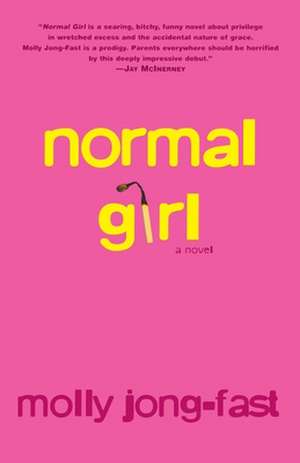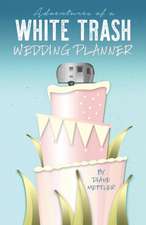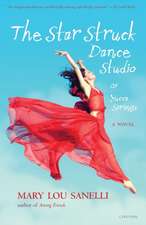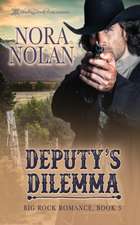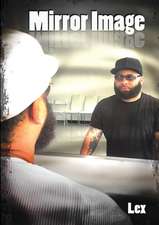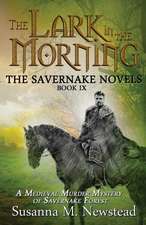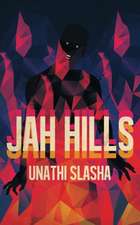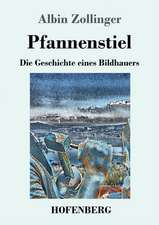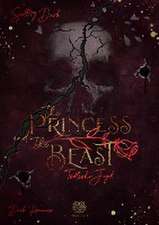Normal Girl
Autor Molly Jong-Fast, Jong-Fasten Limba Engleză Paperback – 31 mai 2001
"Randa, what's wrong with you?"
"Nothing. I mean, I'm a crazy cocaine addict with a hankering for heroin, but other than that, I'm just a nice Jewish girl from the Upper East Side with Prada shoes. How could anything be wrong?"
Molly Jong-Fast's Normal Girl is striking-and as funny as it as real. Inspired by her own experiences growing up in the decadent, fast-paced netherworld of New York City's jet set, Jong-Fast's debut novel is a hilarious, hard-edged walk past the velvet rope.
At just nineteen, Miranda Woke seems to have it all. Her parents are famous socialites, she's already been written up on Page Six sixteen times, she's on all the right invitation lists, and drugs and alcohol are never in short supply. But while her image screams "It girl," she'd rather be a normal girl, and the A-list feels even more uncomfortable than her Manolo Blahnik shoes. In fact, she's become the "living embodiment of an awkward phase" with "more issues than Harper's Bazaar." Neither Xanax nor Deepak Chopra tapes help. And now that her junkie party has trashed her parents' house, she has to liquidate her trust fund to pay Mom's decorator for a quick fix. But worst of all, Miranda thinks she just murdered her own boyfriend.
In an all-too-glamorous world where the cell phone is always ringing, Miranda sees no escape other than a downward spiral of cocaine, Valium, and heroin. It takes friends who offer more than air kisses to force Miranda to look in the mirror and get some help.
Preț: 85.98 lei
Nou
Puncte Express: 129
Preț estimativ în valută:
16.45€ • 17.12$ • 13.58£
16.45€ • 17.12$ • 13.58£
Carte tipărită la comandă
Livrare economică 15-29 aprilie
Preluare comenzi: 021 569.72.76
Specificații
ISBN-13: 9780375757594
ISBN-10: 0375757597
Pagini: 208
Dimensiuni: 141 x 210 x 14 mm
Greutate: 0.22 kg
Ediția:Paperback.
Editura: Villard Books
ISBN-10: 0375757597
Pagini: 208
Dimensiuni: 141 x 210 x 14 mm
Greutate: 0.22 kg
Ediția:Paperback.
Editura: Villard Books
Notă biografică
Molly Jong-Fast is the author of Normal Girl, Girl, Maladjusted, and The Social Climber’s Handbook. She has written for many newspapers and magazines, including The New York Times, Harpers Bazaar, W Magazine, Cosmo, The Times (UK), and Marie Claire. She lives in Manhattan. She is married to a recovering academic. They have three very small children, all of whom like to talk to her when she is on the phone.
From the Hardcover edition.
From the Hardcover edition.
Extras
Chapter 1
I think it was Donna Rice or Donna Reed or maybe it was Diana Ross who said Andy Warhol's funeral was like a night at Studio 54. In that vein, Jeff's funeral is the equivalent of a night at Planet Hollywood. But it's all the same really: fast food, cocaine, and disco music. Nothing ever really changes, not around here anyway. Maybe disco has become techno, promiscuous sex has morphed into cautious promiscuous sex, and cell phones have replaced religion as the opiate of the masses, but our relentless obsession with The Next Best Thing-ism (T.N.B.T.-ism) remains the same.
If only it was as simple as me, the out-of-it-never-really-It girl, trying to snort a bump in a speeding taxi. Brushing the cigarette ash off my black tunic, I catch sight of a buttoned-down grandmother and her wiry granddaughter in her school kilt. Flying past them on Park Avenue, I have a brief moment of that there-is-something-really-wrong-with-my-life feeling. It passes before it can take me. The driver and I argue about which park crossing to take. Ignoring me, he turns abruptly, knocking my little pile of cocaine onto my suede boots. I run my fingers up and down my boots until I've wiped, sucked, and licked every particle of cocaine from within the grains of suede.
Call me an antisocial socialite, but this is my fifth funeral in September and I can't even keep my shoes clean. My grandmother, my aunt, three friends, and a distant cousin have died in the same ninety-one days, making funeral attendance my new profession. I have worn black more in the last three months than I did during my entire Pablo Neruda reading phase. But all this goes with the territory, or so I assume--it's not exactly as if they tell you how to behave when you've murdered your boyfriend. And there's certainly no chapter in Emily Post's etiquette book on the how-to's of attending your victim's funeral.
The temple grows out of the sidewalk on Fifth Avenue, a giant monument to rich Jews. The face of the building is slick, built with white bomb-shelter brick strong enough to withstand the Nazis. There is nothing that could ever affect its structure, not the multitude of deaths mourned here, not the anorexia that wastes the female congregation, not the Prozac that makes them comfortable, not even acid rain. I've been to lots of funerals at this temple; this is the first for someone I've murdered, though.
It's one of those rare hot, sticky, overcast days in September. The kind of day where your thighs stick to the vinyl taxi seats. It's been an exhausting week of hangovers, clumpy mascara, and working at the dreaded gallery. But it's over because it's Thursday and that's when my workweek ends. My plan is this: make an appearance at the funeral; mourn; spend no more than seven minutes alone with my mother; leave; go to Greenwich with some people I find at the funeral; when in Greenwich stay in mother's shrine to herself, raise my liver count, suppress my red-blood-cell count, deaden some nerve endings, and try to have a good time in the process. But I'm flex, except for the seven-minutes part.
Funerals are the cotillions of the nineties, where the young people meet and mingle. All this might seem abnormal to you--the fact that this congregation mourns the teenage sons of bankers every day.
Filling the sidewalk with chatter from their cell phones, these glossy blow-dried mourners shine like they've never had a problem in their perfectly choreographed lives. They aren't like us. The difficulties we normal people suffer slide right off their publicists' backs. Never having had an awkward phase, they live busy lives, adjusting their sunglasses and making sure their unborn children have a place on the waiting list for the Dayton School. Some of them half turn to look at me (maybe it's my dirty fingernails that make me not merit a full turn). I am the living embodiment of an awkward phase. But I must seem vaguely familiar to them--after all, I've been mentioned on Page Six sixteen times, and I'm only nineteen.
I barely have room to move at this movie premiere masquerading as a funeral. There's a paparazzi line and everything, leaving me to wonder who they got to cater the shiva. I really like chocolate rugelach. I noncalorically enjoy the smell of it.
My mother waits for me outside. She is clad in a high-waisted vintage Halston pants suit that's a little too tight for someone of her advanced age, somewhere in the ballpark of forty-five to sixty. Her almost invisible cellulite bubbles in a little bump around her waist. I love her small, doll-like features and her soft voice. I love her littleness. She is thin, in that willowy, dehydrated way all socialites are thin. Her short brown hair may have seen one too many hair dryers, but it still does the job of covering the scars behind her ears. She got her work done in Brazil, early eighties, hence the scars behind her ears. I lean down and kiss her forehead. Because both of us were calculating on the other's lateness, we have nearly missed each other.
"Are those my black burned-velvet pants?" Holding up the back of my shirt, she inspects my butt for a confirmation that they are indeed her pants. "Just making sure you've taken my favorite pants, the only pants that fit me, the ones with the green metallic lining and the feather attached to the back pocket."
"No, hello. No, how are you doing at this tragic time?"
"Sorry, sweetie." She takes my shoulders in a forced hug. I step back, choking on her sickly sweet perfume.
"Where did you get that perfume? It smells ... hum ... more dead cat than flower." She frowns and I realize I've hurt her feelings. "I'm sorry. It's nice, very nice and floral. Very floral." I'm trying to behave like nothing is wrong, but the chatter in my head about Jeff, perfume, and the fact that I'd love another bump makes me feel otherwise. A family tree that reads like other people's resumes should guarantee some peace of mind. But I have this feeling where the peace of mind should be, and when I get this feeling ...
"Miranda, go like this." She points a rounded pink nail in my direction.
"What? Could you not stick your finger in my face?"
"You have something in your teeth."
"Oh, where?" She points to my two front teeth.
"Right there." She sticks her fingernail into my teeth.
"Is it gone?" I look around to make sure that no one's looking at me, the tooth-picker. I have porcelain fronts on all my teeth, making it a challenge to extract things from in between them.
"Here." She pulls the piece of green foliage out. God knows how it got there. I haven't eaten solid food since the advent of Kate Moss, at least I think I haven't. "There." She smiles proudly. She's done with me, finished with her motherly moment. "Let's go."
We walk down the paparazzi line, like sad people at a funeral. Cameras flash but promptly stop when we pass in front of them--after all, an old socialite and her daughter, there's hardly a scandal in that. If they only knew.
"Should I smile?" I whisper. I just want to look normal. There is nothing wrong with me, no internal crisis that a Xanax couldn't reconcile.
"No, people don't smile at funerals. Keep your head down and look sad."
Mom vogues for the cameras. Like someone who knows how to stick out her neck so her jowls, the jowls of an aging socialite, are stretched out, obscured by her damaged brown hair.
"Right, yeah, sad." I'm not a shrink or anything, but I can say with some authority that it's been a long time since I've had a feeling that hasn't been a direct result of some drug I've taken. So the word sad just seems like another word that rolls down my tongue and out of my mouth.
"Come on, Miranda." She sounds agitated, fidgety; she needs a nice stiff vodka tonic. "I'd think you'd be good at this by now."
"I'd think so too, but . ."
"Yeah."
"Miraaandaaa!" I feel a shock run through my hair follicles from a voice that could make me bald. I turn, pulling my arm away from Mom's.
James Wool looks like a newspaper reporter but isn't. He talks like he's smart, which he also isn't. And he's natty, like his tweed jacket. His lips are so far from my cheek when he air-kisses me, he's still in the 718 area code.
"Well, well. How is everybody's little vixen?"
"Hi James."
"Wasn't he young? Isn't this sad? Horrible really? Didn't you see this coming? I didn't, but you must have. Didn't you? Can you believe he was so young?" James doesn't engage in normal conversation; instead he shoots questions in the general direction of the person he's talking at. Doesn't he know I was trained as a charming dinner companion, not as an intellectual?
"No, yes, yes, yes ... yes, no, well, twenty-nine isn't that young, but it's young to die. I guess." Personally, I can't imagine why anyone would want to live past twenty-one; after all, doctors recommend standard colonoscopies every year after turning fifty-blah. Gastroenterology aside, most people don't die three months after turning twenty-nine. I almost reach for his hand, but then I remember we Wokes don't do that kind of thing. People push past us. James doesn't move. I need him to go away.
"So, Miranda. Tell me, what are we up to these days?" James lived in England for one semester in college. Ever since then his speech has been plagued with annoying Euroisms.
"Nothing. I'm working at the gallery two days a week now, which is really interfering with my martini schedule ... and I'm supposed to be involved in this group show for women. But I just can't get inspired. So I've decided to go to parties until the inspiration hits me."
"Brilliant, brilliant." Even his chuckle is patronizing as he plays with his glasses, as if to say he finds inanimate objects more interesting than me. "I mean, how many times does one get to be nineteen?"
"Right. But James, most people here think I'm twenty-two, so don't tell them I'm nineteen." He looks at me as if to say this is exactly what he expects from someone like me. "Do you swear?"
"I wonder why everyone doesn't just drop out of college and paint. I wonder why everyone doesn't do exactly what they want to."
"Gee. I don't know. They should. Come out of the closet much?"
"I must find my wife. Ciao. Ciao." He walks away, thank God. I watch his feet until I can no longer differentiate his baby-blue Hush Puppies from anyone else's.
People file in--socialites, models, and various uptowners. You know this is either a funeral or a fashion show, because there aren't enough seats. I slide onto the wooden bench, wedging myself between Mom and the armrest that ends the bench. Mom sits next to Jeff's leathery mother, who clocks enough hours at Capri Tanning Center to be considered more handbag than woman.
I survey the population, like the social scientist I am--behind me is the Southampton, Upper East Side crowd, on my right is the rich and old, Upper West Side communist-turned-capitalist contingent. To my left is the "I want to be an editor, so buy me a magazine" group. Eurotrash is in the back left corner, defrocked royalty in the back right. The group has sorted and divided itself in minutes.
"Miranda." Someone's hand is on my shoulder, invading that invisible barrier of what is mine versus what is yours. I flinch; there are two people who can touch me. One of them is dead, and the other is not Whit. I know it's Whit because I can hear the drag of his umbrella on the tile and I can smell him--even from thirty feet away the subtle mixture of Halston cologne, cigars, and vodka permeates the membrane. Since I've known him, he's always carried an umbrella. It's possible that even if it were to never rain again, he'd still carry an umbrella. I brush his hand off my shoulder as if it were dandruff.
"Whit, what are you doing here?" I whisper, "You didn't even know him."
"We can't all be friends with the A-list. But it's a free country; I can surely attend anyone's funeral." Whit and I met through Crown Princess Marie of Kona (before she died of a mysterious form of pneumonia, aka AIDS). He felt familiar to me, something Harvard in the way he lectured me, something impressive in his vast knowledge of all those books longer than a thousand pages that I hadn't even started. I had a rare moment of good judgment and didn't let him seduce me. I think that won his respect.
"Whit, you look so handsome," I say, flirting, lying.
"You think? How's life in the art world treating you?"
"Use the word life lightly."
"Well, how is it?" he says, fishing for a problem to solve.
"You know, the usual. Answering the phone, staring into space, checking my voice mail, keeping one eye out for the future Mr. Woke." I look around trying to find someone cute to make eye contact with to rescue me from this conversation. "So, tell me about how busy you are?"
"What do you mean?" He's so obnoxious.
"I'm sure you're very busy, right?" Something busy that will never materialize into a paycheck or even a mention.
"Hiiiiiiiii. Whit, you look so handsome." Clearly Mom and I have reviewed the same social manual, The Woke Way for Wakes, Shiva, and Funerals.
"Hello, Diana." Whit hates my mother, for a number of reasons. Reason number one: He is appalled by her fifty-by-fifty-foot closet filled with enough Manolo Blahnik shoes to bring a Third World country out of famine.
She puts her arm around my shoulder, and I shake her off. "Mom." She senses my annoyance. Maybe I could get high from smoking my boots--there's probably enough cocaine in the suede, but I can't imagine smoking suede is that much fu n.
"Well--" Her cell phone rings, and with this she descends into the level of hell reserved only for dermatologists who advertise on subways and socialites who talk on cell phones at funerals. "I'm sorry, darling."
"What are you sorry for?" I snap at her.
A few manicured nails dismiss me with the "I'm talking on my cell phone at a funeral" sign. And yet another mortifying mommy moment has taken place.
"What is she saying?" Whit leans a little too close to me. I shake my head as if to say I don't know.
Lucy Sunningdale winks at Mom as if to say, "Hey, comrade of the mutual admiration society . . ." That should make Mom happy, if she notices. Whit is dressed in layers--blue shirt under gray vest, under brown jacket, under plaid scarf, all under a bowler hat. I wonder how long it takes him to pile on all that clothing in the morning.
"So, Whit, what are you working on these days?"
"I'm working on a project with Mary Westheimer. You must know who she is?"
I do. "No."
"Miranda." He looks at me like I've never had a thought in my life. "She's the pinnacle, the most famous, most important female artist in the world, and I am doing her next piece."
"But you're not an artist."
"Miranda, you need to listen, that's your problem. I didn't say that, I said I was doing her next piece. You're cripplingly literal. That's your problem: black-and-white, literal thinking. You kill me."
I hope not. I can only handle being responsible for one person's death.
He looks at my shaking left hand. I try to hold it still with my right hand. "What?" He looks at me with that I-know-what-your-problem-is-because-I-took-psychology-in-college look. "What?"
"You have been seeming the tiniest bit odd lately. I mean, not that odd but a little ... a little bit off."
I try to move away from him. "Is it hot in here or what?"
He moves his face closer to mine. "Really. I just think you might ... I don't know ... be taking too many sleeping pills. That might be your problem."
"Ah. No."
"You seem, I don't know ..." Seem like a murderer? I'd go with that. After all, I think I just killed my boyfriend. He inhales deeply and looks at me. "--thinner."
"New diet." I smile.
"Yeah."
"I've lost fifteen pounds. I needed to lose the weight. You remember how blubberous I was when I came back from London."
"Yeah. You were huge. Massive. Now, that was bloat, my God, that was bloat." He plays with the handle of his umbrella.
"Thanks."
"But I know the diet you're on." He smiles.
"What? You mean the eighties diet: all cocaine and grapefruit, all the time."
"Not funny."
"Whit, save the value judgments. New topic. I really don't think any of this is your business anyway."
He nods. "It's all my business. Always. Everything's my business."
"What are you, a gangster? You sound like a gangster ... or a gossip columnist."
"Maybe I am. A gangster, that is."
"Sure, whatever. Maybe . . ." I look around. This conversation is droning on, so I interject the universal sign for "Let's end this conversation": "Anyway." I sigh.
And right on cue: "Oh, there's my dear friend Alex." A mass of golden-brown curly hair walks by us. Whit waves furiously. Those tresses can claim responsibility for seducing every woman under thirty-five in the art world.
"Whit."
"What?" he says as he turns toward Alex and his hair.
"I don't know how you can say Alex is your dearest friend," I whisper. "I was at a party with him, and when I dropped your name, there was no recognition. No flicker that he ever knew what I was talking about. It was like I was speaking Portuguese."
"Your problem is you need to see a doctor. Get help." Whit leaves me to chase after Alex.
I turn back to Mom, who has somehow started talking to Sloane Billbinder. It's lifeboats on the Titanic, cocktail-party syndrome. "So, Sloane, what's the new hair color for fall?" Mom asks as if she's discussing Kierkegaard.
"White-gray on the under-twenty set, black for over thirty. I just love the new fall cut, too. It's sooo cute. It's going to look beyond superperfect on Miranda. Marcus--you know Marcus, my husband? Anyway, he thinks Miranda would look great in a sort of modified Paula Jones look. I like to think of the cut as a P.J.--modern yet functional yet political." Sloane never fidgets. Her hands are attached to skinny arms, which are attached to tiny shoulders. Her other bones stick out at fashionable right angles. Her white-blond hair sits in a loose knot at the nape of her neck, and she is wispy the way soap opera stars are when engaged in conversation. She is the kind of woman who stuffs her dead cats and displays them lovingly on the coffee table. I don't even have a coffee table.
"Yeah?" I look at both of them. Is this normal funeral conversation?
"Miranda, you look so cute, darling. Really thin." Sloane squeezes my shoulder to articulate her point. I'm gonna bet Ms. Billbinder never murdered any of her boyfriends or ex-husbands.
"Well, if it seems like it'll look good on her, then I want her to have that haircut. I think she needs a new look. In fact, I'm buying her a whole new fall wardrobe. She's been somewhat depressed. I think this will perk her up. Don't you, Sloane?"
"Mom. God. Don't waste your time. I'll just have Dr. Berkenstein up my Prozac."
"Excuse me." Mom takes a tone that sounds suspiciously authority-figure. Sloane seems a little taken aback.
"What? It's the nineties, I can't talk about psychopharmacology at a funeral? At least give me that."
Janice taps me hard on the shoulder. She is seated on the pew behind me. "Hey, kiddol" she quietly mouths. I am kiddo because for all practical purposes I am all of ten years old in the mind of fashion aficionado, former model, former and current junkie, current wife of James, and former stripper Janice.
"Hey, Janice, we were just talking about Prozac. Want to join in? What are your thoughts on the subject of psychopharmacology?" She smiles at me as if to say shut up. She hugs me, and I can feel her ribs through her sheer silk designer blouse. She turns her back to us to go rub ribs with some girl who looks like a refugee but is actually the bearer of the new calf for Calvin clam diggers. She leaves and the smell of Chanel No. 5 lingers, almost blocking out the formaldehyde smell of funeral, which is a taste thousands of grams of cocaine can't cover.
The noise starts to subside. The rabbi enters. For a moment there is silence, just breath. Maybe for a half second I have the feeling everything might be okay. The pressure falls from my shoulders and the silence makes my ears ring. Then the rabbi starts to speak, and so does everybody else.
The rabbi introduces Jeff 's plasticky sister and hobbles off the stage. What little of Jeff's sister's body is naturally hers is draped in a gray suit and ice-blue shirt. I sweat a lot; I'd sweat right through that kind of soft chambray. Her smart blond WASPy hair and blue eyes promise her at the very least marriage to a money guy and the fifteen rooms on Fifth Avenue that follow suit. Jeff's sister waxes Upper East Side Melrose Place. She had a Porsche in high school and used it, or more accurately the backseat of it, to give all the popular boys blow jobs while Billy Joel whined out "Piano Man." At the time, her tendency toward Billy Joel seemed more offensive than her sluttiness. She gets up and starts to lose herself in her sentences. In a disconcerting muddle she looks at me harshly, like I murdered her brother, which I did.
Jeff only wore black and gray. I'm sure he's wearing a black suit even now. I wonder what he smells like. Probably like formaldehyde. Better than his usual smell of burnt Turns (aka crack), sex, and cigarettes.
Jeff and I never quite worked as lovers. It seemed the harder I tried, the meaner he got. I should have pulled up stakes a long time ago. But as with everything else in my life, there came a point when I didn't have a choice anymore, a time when, like the drugs, he was as much me as I was.
I turn back and look at Janice. She's flirting with the new and soon-to-be-ex editor of Mavda Magazine. Mavda Magazine vibing with hipness, oozing from every well-formatted, contrived, embellished story about the men who live dangerously in high-end retail stores around Manhattan. Typical, she can't quite pick the winners. The row behind them is filled with journalists like David Faxem, a notorious Speak Magazine hit man defined by his love of hotel rooms that rent by the hour and my personal brainchild, the seventeen-martini lunch. David earns his frequent-flyer miles with trips to Hazelden. He rubs leather-padded shoulders with Janice's gay husband, James Wool. James Wool is an artistic genius, or so says Upper East Side Jewish Socialite Magazine, which is always wrong about everything, but maybe he's a genius baby-sitter (having cut his teeth on the Schnabel kids).
"Are those pants last season's?" David whispers at me.
"Fuck off."
"I thought I saw them on the rack at Loehmann's." I turn around and smile at David, who in turn smiles at James. Mom, who has radar for anything about herself, tunes in and whispers, "Those pants look fab on you; don't listen to them."
Jeff's sister has left the podium, and now Brett settles in and gazes across the room. The law of cocaine physics dictates that he'll never make eye contact with a single congregation member; the tear of sweat on his forehead further assures this. He struggles with the microphone as if he has something urgent to say. I can see his face try to muster the right brand of emotion.
"He's Mafia," I whisper in Mom's ear.
"Prove it."
"Isn't the suit proof enough?"
"I won't buy that theory until I see a body in the trunk, Miranda."
Brett is a Five Towns Jew. Everything from his patent-leather shoes to his baggy blue suits that were hand-picked by his mother at Today's Man tell us this. His accent is unchanged from the Holy Land (Long Island), and his nose lacks the surgical deenhancement that we Upper East Side Jews know so well. Brett is the antithesis of Diet Judaism, of which my family is a case study. Diet Jews are different; rarely do we belong to a temple, we use the Maxwell House Haggadah and shun all of the Five Towns (each town a little more than the one before). We celebrate one holiday. We just celebrate it five times a year. ("Which holiday is the egg-and-lamb holiday, and which is the one with the cookies that look like hats?")
Brett has good Hugh Grant hair, but he's fat. He thinks he's a sculptor, but his mother is still waiting for him to become a podiatrist. He'd sue me for thinking this.
It's immaterial what he said or how he said it. Brett gave us everything he had. Unfortunately, he didn't have much.
The next person to torture us is yet another rabbi, followed by a cantor, and then Jeff 's small tan mother gives us a speech that covers each of her past lives in painful detail--a blatant overshare. I'd give her performance a nine out of ten. She's almost Shirley MacLaine. Almost.
"You still awake, kiddo?" Janice, her pearls, and her cigarette breath lean over me. Ten years in New York, and she still can't quite free herself from that Southern twang of an accent.
"Somewhat awake. Somewhat asleep."
"Shall we go powder our noses?"
"Fab. Mom, tell me what I miss."
"I'll take notes."
I hate it when anyone touches me, but none of my rules mean anything with Janice. When we talk incessantly about nothing, she puts her hand in mine and I hold on. She applies a layer of false eyelashes in the mirror and then leaves me alone at the sink with some lines of coke spread out on the counter behind the sink. Snorting coke makes the voices stop. Each line burns with the promise of an escape that I'm still waiting for.
The stall door slams shut, and I can hear the lighter under the spoon, the popping boiling that heroin makes, like Jiffy Pop with kick. I never shoot up. Okay, okay, okay. Rarely do I shoot up. She tightens the belt. While I can't see her because she has done me the service of closing the door, I certainly can hear her squirm under the pressure of her cashmere belt, now conveniently working as an alternative to a tourniquet.
The tapping of three polished fingers grows louder and louder, until she finds a vein. I can hear her groan as the needle pierces her skin, and I hear her arm hit the side of the stall as it goes limp with the gentle floating feeling. I hope she gets rid of the bloody syringe. I hate looking at other people's used kits.
She comes out of the stall looking horrible, more awful than usual. "God, Janice, go easy." Wetting a paper towel, I try to wipe the blood off her arm and the drool from her chin. She looks at me with void eyes, a junkie who doesn't know any better. I sit her on the floor and watch her come back from that place that isn't quite death but isn't quite life either. I smile at her, knowing she isn't looking. I like secretly watching the life come back into her features, white lips go pink, cheeks rose up, then her eyes recognize me again. Her hands shake, and it's clear to both of us she's just trying to get straight, chasing a high lost years ago. Somehow I find all of this comforting, always thinking the death of one of us would be the end of all of us, but clearly my suspicions were wrong, further proof that nothing ever changes around here. When she looks better, I stand her up so that she can lean on the sink to put on some lipstick.
"Are you okay?"
"Yeah."
"Good." I look into the mirror at both of us. She shakes, turning on the tap. The water makes a noise like rivers in the country, far away from the dirt of the city. "Are you sure?" I turn to her. She doesn't look okay, but what heroin addict does?
"God, Miranda, would you please stop being so hysterical."
"Never." We smile at each other.
"Good."
"That husband of yours is quite a gem."
"Why? What did he do? He is such a bad boy. Never can quite keep him on his leash."
"Just the usual." Her eyes are dark again, a sure sign that yet another trip to Bellevue is on the horizon. The skin on Janice's face has started to recede back into the bone, as if I'm losing her to herself. Her hands are dry and red with eczema, a contrast to the rest of her skin, which is an unearthly white the color of fake teeth. All the rehabs, all the fresh starts, all the midnight ambulance trips to Lenox Hill, Mt. Sinai, and Harlem's splendid North General Hospital.
"Miranda, what about James?"
"Oh, forget it. I don't want to miss the end. I love my religion. I'm sure the rabbi is saying something fabulously enlightening right now and we're missing it."
She smiles. "You always had a thing for him."
"Though I do like nebbishy. But the rabbi seems a little old for me."
Our eyes meet with half smiles, and for a moment I feel something. I feel like we're sisters. She smoothes the creases of my tunic and touches my hair, and I let her.
Mom's whispering into her cell phone when I squeeze back into my place on the bench.
"Mom."
"What?"
"It's a funeral." She clicks down on her cell phone.
"I love you." She runs her fingers through my hair.
"Don't touch me."
"Fine."
"Stop, I want to listen."
"Fine. Miranda."
"Shussshhh."
I think it was Donna Rice or Donna Reed or maybe it was Diana Ross who said Andy Warhol's funeral was like a night at Studio 54. In that vein, Jeff's funeral is the equivalent of a night at Planet Hollywood. But it's all the same really: fast food, cocaine, and disco music. Nothing ever really changes, not around here anyway. Maybe disco has become techno, promiscuous sex has morphed into cautious promiscuous sex, and cell phones have replaced religion as the opiate of the masses, but our relentless obsession with The Next Best Thing-ism (T.N.B.T.-ism) remains the same.
If only it was as simple as me, the out-of-it-never-really-It girl, trying to snort a bump in a speeding taxi. Brushing the cigarette ash off my black tunic, I catch sight of a buttoned-down grandmother and her wiry granddaughter in her school kilt. Flying past them on Park Avenue, I have a brief moment of that there-is-something-really-wrong-with-my-life feeling. It passes before it can take me. The driver and I argue about which park crossing to take. Ignoring me, he turns abruptly, knocking my little pile of cocaine onto my suede boots. I run my fingers up and down my boots until I've wiped, sucked, and licked every particle of cocaine from within the grains of suede.
Call me an antisocial socialite, but this is my fifth funeral in September and I can't even keep my shoes clean. My grandmother, my aunt, three friends, and a distant cousin have died in the same ninety-one days, making funeral attendance my new profession. I have worn black more in the last three months than I did during my entire Pablo Neruda reading phase. But all this goes with the territory, or so I assume--it's not exactly as if they tell you how to behave when you've murdered your boyfriend. And there's certainly no chapter in Emily Post's etiquette book on the how-to's of attending your victim's funeral.
The temple grows out of the sidewalk on Fifth Avenue, a giant monument to rich Jews. The face of the building is slick, built with white bomb-shelter brick strong enough to withstand the Nazis. There is nothing that could ever affect its structure, not the multitude of deaths mourned here, not the anorexia that wastes the female congregation, not the Prozac that makes them comfortable, not even acid rain. I've been to lots of funerals at this temple; this is the first for someone I've murdered, though.
It's one of those rare hot, sticky, overcast days in September. The kind of day where your thighs stick to the vinyl taxi seats. It's been an exhausting week of hangovers, clumpy mascara, and working at the dreaded gallery. But it's over because it's Thursday and that's when my workweek ends. My plan is this: make an appearance at the funeral; mourn; spend no more than seven minutes alone with my mother; leave; go to Greenwich with some people I find at the funeral; when in Greenwich stay in mother's shrine to herself, raise my liver count, suppress my red-blood-cell count, deaden some nerve endings, and try to have a good time in the process. But I'm flex, except for the seven-minutes part.
Funerals are the cotillions of the nineties, where the young people meet and mingle. All this might seem abnormal to you--the fact that this congregation mourns the teenage sons of bankers every day.
Filling the sidewalk with chatter from their cell phones, these glossy blow-dried mourners shine like they've never had a problem in their perfectly choreographed lives. They aren't like us. The difficulties we normal people suffer slide right off their publicists' backs. Never having had an awkward phase, they live busy lives, adjusting their sunglasses and making sure their unborn children have a place on the waiting list for the Dayton School. Some of them half turn to look at me (maybe it's my dirty fingernails that make me not merit a full turn). I am the living embodiment of an awkward phase. But I must seem vaguely familiar to them--after all, I've been mentioned on Page Six sixteen times, and I'm only nineteen.
I barely have room to move at this movie premiere masquerading as a funeral. There's a paparazzi line and everything, leaving me to wonder who they got to cater the shiva. I really like chocolate rugelach. I noncalorically enjoy the smell of it.
My mother waits for me outside. She is clad in a high-waisted vintage Halston pants suit that's a little too tight for someone of her advanced age, somewhere in the ballpark of forty-five to sixty. Her almost invisible cellulite bubbles in a little bump around her waist. I love her small, doll-like features and her soft voice. I love her littleness. She is thin, in that willowy, dehydrated way all socialites are thin. Her short brown hair may have seen one too many hair dryers, but it still does the job of covering the scars behind her ears. She got her work done in Brazil, early eighties, hence the scars behind her ears. I lean down and kiss her forehead. Because both of us were calculating on the other's lateness, we have nearly missed each other.
"Are those my black burned-velvet pants?" Holding up the back of my shirt, she inspects my butt for a confirmation that they are indeed her pants. "Just making sure you've taken my favorite pants, the only pants that fit me, the ones with the green metallic lining and the feather attached to the back pocket."
"No, hello. No, how are you doing at this tragic time?"
"Sorry, sweetie." She takes my shoulders in a forced hug. I step back, choking on her sickly sweet perfume.
"Where did you get that perfume? It smells ... hum ... more dead cat than flower." She frowns and I realize I've hurt her feelings. "I'm sorry. It's nice, very nice and floral. Very floral." I'm trying to behave like nothing is wrong, but the chatter in my head about Jeff, perfume, and the fact that I'd love another bump makes me feel otherwise. A family tree that reads like other people's resumes should guarantee some peace of mind. But I have this feeling where the peace of mind should be, and when I get this feeling ...
"Miranda, go like this." She points a rounded pink nail in my direction.
"What? Could you not stick your finger in my face?"
"You have something in your teeth."
"Oh, where?" She points to my two front teeth.
"Right there." She sticks her fingernail into my teeth.
"Is it gone?" I look around to make sure that no one's looking at me, the tooth-picker. I have porcelain fronts on all my teeth, making it a challenge to extract things from in between them.
"Here." She pulls the piece of green foliage out. God knows how it got there. I haven't eaten solid food since the advent of Kate Moss, at least I think I haven't. "There." She smiles proudly. She's done with me, finished with her motherly moment. "Let's go."
We walk down the paparazzi line, like sad people at a funeral. Cameras flash but promptly stop when we pass in front of them--after all, an old socialite and her daughter, there's hardly a scandal in that. If they only knew.
"Should I smile?" I whisper. I just want to look normal. There is nothing wrong with me, no internal crisis that a Xanax couldn't reconcile.
"No, people don't smile at funerals. Keep your head down and look sad."
Mom vogues for the cameras. Like someone who knows how to stick out her neck so her jowls, the jowls of an aging socialite, are stretched out, obscured by her damaged brown hair.
"Right, yeah, sad." I'm not a shrink or anything, but I can say with some authority that it's been a long time since I've had a feeling that hasn't been a direct result of some drug I've taken. So the word sad just seems like another word that rolls down my tongue and out of my mouth.
"Come on, Miranda." She sounds agitated, fidgety; she needs a nice stiff vodka tonic. "I'd think you'd be good at this by now."
"I'd think so too, but . ."
"Yeah."
"Miraaandaaa!" I feel a shock run through my hair follicles from a voice that could make me bald. I turn, pulling my arm away from Mom's.
James Wool looks like a newspaper reporter but isn't. He talks like he's smart, which he also isn't. And he's natty, like his tweed jacket. His lips are so far from my cheek when he air-kisses me, he's still in the 718 area code.
"Well, well. How is everybody's little vixen?"
"Hi James."
"Wasn't he young? Isn't this sad? Horrible really? Didn't you see this coming? I didn't, but you must have. Didn't you? Can you believe he was so young?" James doesn't engage in normal conversation; instead he shoots questions in the general direction of the person he's talking at. Doesn't he know I was trained as a charming dinner companion, not as an intellectual?
"No, yes, yes, yes ... yes, no, well, twenty-nine isn't that young, but it's young to die. I guess." Personally, I can't imagine why anyone would want to live past twenty-one; after all, doctors recommend standard colonoscopies every year after turning fifty-blah. Gastroenterology aside, most people don't die three months after turning twenty-nine. I almost reach for his hand, but then I remember we Wokes don't do that kind of thing. People push past us. James doesn't move. I need him to go away.
"So, Miranda. Tell me, what are we up to these days?" James lived in England for one semester in college. Ever since then his speech has been plagued with annoying Euroisms.
"Nothing. I'm working at the gallery two days a week now, which is really interfering with my martini schedule ... and I'm supposed to be involved in this group show for women. But I just can't get inspired. So I've decided to go to parties until the inspiration hits me."
"Brilliant, brilliant." Even his chuckle is patronizing as he plays with his glasses, as if to say he finds inanimate objects more interesting than me. "I mean, how many times does one get to be nineteen?"
"Right. But James, most people here think I'm twenty-two, so don't tell them I'm nineteen." He looks at me as if to say this is exactly what he expects from someone like me. "Do you swear?"
"I wonder why everyone doesn't just drop out of college and paint. I wonder why everyone doesn't do exactly what they want to."
"Gee. I don't know. They should. Come out of the closet much?"
"I must find my wife. Ciao. Ciao." He walks away, thank God. I watch his feet until I can no longer differentiate his baby-blue Hush Puppies from anyone else's.
People file in--socialites, models, and various uptowners. You know this is either a funeral or a fashion show, because there aren't enough seats. I slide onto the wooden bench, wedging myself between Mom and the armrest that ends the bench. Mom sits next to Jeff's leathery mother, who clocks enough hours at Capri Tanning Center to be considered more handbag than woman.
I survey the population, like the social scientist I am--behind me is the Southampton, Upper East Side crowd, on my right is the rich and old, Upper West Side communist-turned-capitalist contingent. To my left is the "I want to be an editor, so buy me a magazine" group. Eurotrash is in the back left corner, defrocked royalty in the back right. The group has sorted and divided itself in minutes.
"Miranda." Someone's hand is on my shoulder, invading that invisible barrier of what is mine versus what is yours. I flinch; there are two people who can touch me. One of them is dead, and the other is not Whit. I know it's Whit because I can hear the drag of his umbrella on the tile and I can smell him--even from thirty feet away the subtle mixture of Halston cologne, cigars, and vodka permeates the membrane. Since I've known him, he's always carried an umbrella. It's possible that even if it were to never rain again, he'd still carry an umbrella. I brush his hand off my shoulder as if it were dandruff.
"Whit, what are you doing here?" I whisper, "You didn't even know him."
"We can't all be friends with the A-list. But it's a free country; I can surely attend anyone's funeral." Whit and I met through Crown Princess Marie of Kona (before she died of a mysterious form of pneumonia, aka AIDS). He felt familiar to me, something Harvard in the way he lectured me, something impressive in his vast knowledge of all those books longer than a thousand pages that I hadn't even started. I had a rare moment of good judgment and didn't let him seduce me. I think that won his respect.
"Whit, you look so handsome," I say, flirting, lying.
"You think? How's life in the art world treating you?"
"Use the word life lightly."
"Well, how is it?" he says, fishing for a problem to solve.
"You know, the usual. Answering the phone, staring into space, checking my voice mail, keeping one eye out for the future Mr. Woke." I look around trying to find someone cute to make eye contact with to rescue me from this conversation. "So, tell me about how busy you are?"
"What do you mean?" He's so obnoxious.
"I'm sure you're very busy, right?" Something busy that will never materialize into a paycheck or even a mention.
"Hiiiiiiiii. Whit, you look so handsome." Clearly Mom and I have reviewed the same social manual, The Woke Way for Wakes, Shiva, and Funerals.
"Hello, Diana." Whit hates my mother, for a number of reasons. Reason number one: He is appalled by her fifty-by-fifty-foot closet filled with enough Manolo Blahnik shoes to bring a Third World country out of famine.
She puts her arm around my shoulder, and I shake her off. "Mom." She senses my annoyance. Maybe I could get high from smoking my boots--there's probably enough cocaine in the suede, but I can't imagine smoking suede is that much fu n.
"Well--" Her cell phone rings, and with this she descends into the level of hell reserved only for dermatologists who advertise on subways and socialites who talk on cell phones at funerals. "I'm sorry, darling."
"What are you sorry for?" I snap at her.
A few manicured nails dismiss me with the "I'm talking on my cell phone at a funeral" sign. And yet another mortifying mommy moment has taken place.
"What is she saying?" Whit leans a little too close to me. I shake my head as if to say I don't know.
Lucy Sunningdale winks at Mom as if to say, "Hey, comrade of the mutual admiration society . . ." That should make Mom happy, if she notices. Whit is dressed in layers--blue shirt under gray vest, under brown jacket, under plaid scarf, all under a bowler hat. I wonder how long it takes him to pile on all that clothing in the morning.
"So, Whit, what are you working on these days?"
"I'm working on a project with Mary Westheimer. You must know who she is?"
I do. "No."
"Miranda." He looks at me like I've never had a thought in my life. "She's the pinnacle, the most famous, most important female artist in the world, and I am doing her next piece."
"But you're not an artist."
"Miranda, you need to listen, that's your problem. I didn't say that, I said I was doing her next piece. You're cripplingly literal. That's your problem: black-and-white, literal thinking. You kill me."
I hope not. I can only handle being responsible for one person's death.
He looks at my shaking left hand. I try to hold it still with my right hand. "What?" He looks at me with that I-know-what-your-problem-is-because-I-took-psychology-in-college look. "What?"
"You have been seeming the tiniest bit odd lately. I mean, not that odd but a little ... a little bit off."
I try to move away from him. "Is it hot in here or what?"
He moves his face closer to mine. "Really. I just think you might ... I don't know ... be taking too many sleeping pills. That might be your problem."
"Ah. No."
"You seem, I don't know ..." Seem like a murderer? I'd go with that. After all, I think I just killed my boyfriend. He inhales deeply and looks at me. "--thinner."
"New diet." I smile.
"Yeah."
"I've lost fifteen pounds. I needed to lose the weight. You remember how blubberous I was when I came back from London."
"Yeah. You were huge. Massive. Now, that was bloat, my God, that was bloat." He plays with the handle of his umbrella.
"Thanks."
"But I know the diet you're on." He smiles.
"What? You mean the eighties diet: all cocaine and grapefruit, all the time."
"Not funny."
"Whit, save the value judgments. New topic. I really don't think any of this is your business anyway."
He nods. "It's all my business. Always. Everything's my business."
"What are you, a gangster? You sound like a gangster ... or a gossip columnist."
"Maybe I am. A gangster, that is."
"Sure, whatever. Maybe . . ." I look around. This conversation is droning on, so I interject the universal sign for "Let's end this conversation": "Anyway." I sigh.
And right on cue: "Oh, there's my dear friend Alex." A mass of golden-brown curly hair walks by us. Whit waves furiously. Those tresses can claim responsibility for seducing every woman under thirty-five in the art world.
"Whit."
"What?" he says as he turns toward Alex and his hair.
"I don't know how you can say Alex is your dearest friend," I whisper. "I was at a party with him, and when I dropped your name, there was no recognition. No flicker that he ever knew what I was talking about. It was like I was speaking Portuguese."
"Your problem is you need to see a doctor. Get help." Whit leaves me to chase after Alex.
I turn back to Mom, who has somehow started talking to Sloane Billbinder. It's lifeboats on the Titanic, cocktail-party syndrome. "So, Sloane, what's the new hair color for fall?" Mom asks as if she's discussing Kierkegaard.
"White-gray on the under-twenty set, black for over thirty. I just love the new fall cut, too. It's sooo cute. It's going to look beyond superperfect on Miranda. Marcus--you know Marcus, my husband? Anyway, he thinks Miranda would look great in a sort of modified Paula Jones look. I like to think of the cut as a P.J.--modern yet functional yet political." Sloane never fidgets. Her hands are attached to skinny arms, which are attached to tiny shoulders. Her other bones stick out at fashionable right angles. Her white-blond hair sits in a loose knot at the nape of her neck, and she is wispy the way soap opera stars are when engaged in conversation. She is the kind of woman who stuffs her dead cats and displays them lovingly on the coffee table. I don't even have a coffee table.
"Yeah?" I look at both of them. Is this normal funeral conversation?
"Miranda, you look so cute, darling. Really thin." Sloane squeezes my shoulder to articulate her point. I'm gonna bet Ms. Billbinder never murdered any of her boyfriends or ex-husbands.
"Well, if it seems like it'll look good on her, then I want her to have that haircut. I think she needs a new look. In fact, I'm buying her a whole new fall wardrobe. She's been somewhat depressed. I think this will perk her up. Don't you, Sloane?"
"Mom. God. Don't waste your time. I'll just have Dr. Berkenstein up my Prozac."
"Excuse me." Mom takes a tone that sounds suspiciously authority-figure. Sloane seems a little taken aback.
"What? It's the nineties, I can't talk about psychopharmacology at a funeral? At least give me that."
Janice taps me hard on the shoulder. She is seated on the pew behind me. "Hey, kiddol" she quietly mouths. I am kiddo because for all practical purposes I am all of ten years old in the mind of fashion aficionado, former model, former and current junkie, current wife of James, and former stripper Janice.
"Hey, Janice, we were just talking about Prozac. Want to join in? What are your thoughts on the subject of psychopharmacology?" She smiles at me as if to say shut up. She hugs me, and I can feel her ribs through her sheer silk designer blouse. She turns her back to us to go rub ribs with some girl who looks like a refugee but is actually the bearer of the new calf for Calvin clam diggers. She leaves and the smell of Chanel No. 5 lingers, almost blocking out the formaldehyde smell of funeral, which is a taste thousands of grams of cocaine can't cover.
The noise starts to subside. The rabbi enters. For a moment there is silence, just breath. Maybe for a half second I have the feeling everything might be okay. The pressure falls from my shoulders and the silence makes my ears ring. Then the rabbi starts to speak, and so does everybody else.
The rabbi introduces Jeff 's plasticky sister and hobbles off the stage. What little of Jeff's sister's body is naturally hers is draped in a gray suit and ice-blue shirt. I sweat a lot; I'd sweat right through that kind of soft chambray. Her smart blond WASPy hair and blue eyes promise her at the very least marriage to a money guy and the fifteen rooms on Fifth Avenue that follow suit. Jeff's sister waxes Upper East Side Melrose Place. She had a Porsche in high school and used it, or more accurately the backseat of it, to give all the popular boys blow jobs while Billy Joel whined out "Piano Man." At the time, her tendency toward Billy Joel seemed more offensive than her sluttiness. She gets up and starts to lose herself in her sentences. In a disconcerting muddle she looks at me harshly, like I murdered her brother, which I did.
Jeff only wore black and gray. I'm sure he's wearing a black suit even now. I wonder what he smells like. Probably like formaldehyde. Better than his usual smell of burnt Turns (aka crack), sex, and cigarettes.
Jeff and I never quite worked as lovers. It seemed the harder I tried, the meaner he got. I should have pulled up stakes a long time ago. But as with everything else in my life, there came a point when I didn't have a choice anymore, a time when, like the drugs, he was as much me as I was.
I turn back and look at Janice. She's flirting with the new and soon-to-be-ex editor of Mavda Magazine. Mavda Magazine vibing with hipness, oozing from every well-formatted, contrived, embellished story about the men who live dangerously in high-end retail stores around Manhattan. Typical, she can't quite pick the winners. The row behind them is filled with journalists like David Faxem, a notorious Speak Magazine hit man defined by his love of hotel rooms that rent by the hour and my personal brainchild, the seventeen-martini lunch. David earns his frequent-flyer miles with trips to Hazelden. He rubs leather-padded shoulders with Janice's gay husband, James Wool. James Wool is an artistic genius, or so says Upper East Side Jewish Socialite Magazine, which is always wrong about everything, but maybe he's a genius baby-sitter (having cut his teeth on the Schnabel kids).
"Are those pants last season's?" David whispers at me.
"Fuck off."
"I thought I saw them on the rack at Loehmann's." I turn around and smile at David, who in turn smiles at James. Mom, who has radar for anything about herself, tunes in and whispers, "Those pants look fab on you; don't listen to them."
Jeff's sister has left the podium, and now Brett settles in and gazes across the room. The law of cocaine physics dictates that he'll never make eye contact with a single congregation member; the tear of sweat on his forehead further assures this. He struggles with the microphone as if he has something urgent to say. I can see his face try to muster the right brand of emotion.
"He's Mafia," I whisper in Mom's ear.
"Prove it."
"Isn't the suit proof enough?"
"I won't buy that theory until I see a body in the trunk, Miranda."
Brett is a Five Towns Jew. Everything from his patent-leather shoes to his baggy blue suits that were hand-picked by his mother at Today's Man tell us this. His accent is unchanged from the Holy Land (Long Island), and his nose lacks the surgical deenhancement that we Upper East Side Jews know so well. Brett is the antithesis of Diet Judaism, of which my family is a case study. Diet Jews are different; rarely do we belong to a temple, we use the Maxwell House Haggadah and shun all of the Five Towns (each town a little more than the one before). We celebrate one holiday. We just celebrate it five times a year. ("Which holiday is the egg-and-lamb holiday, and which is the one with the cookies that look like hats?")
Brett has good Hugh Grant hair, but he's fat. He thinks he's a sculptor, but his mother is still waiting for him to become a podiatrist. He'd sue me for thinking this.
It's immaterial what he said or how he said it. Brett gave us everything he had. Unfortunately, he didn't have much.
The next person to torture us is yet another rabbi, followed by a cantor, and then Jeff 's small tan mother gives us a speech that covers each of her past lives in painful detail--a blatant overshare. I'd give her performance a nine out of ten. She's almost Shirley MacLaine. Almost.
"You still awake, kiddo?" Janice, her pearls, and her cigarette breath lean over me. Ten years in New York, and she still can't quite free herself from that Southern twang of an accent.
"Somewhat awake. Somewhat asleep."
"Shall we go powder our noses?"
"Fab. Mom, tell me what I miss."
"I'll take notes."
I hate it when anyone touches me, but none of my rules mean anything with Janice. When we talk incessantly about nothing, she puts her hand in mine and I hold on. She applies a layer of false eyelashes in the mirror and then leaves me alone at the sink with some lines of coke spread out on the counter behind the sink. Snorting coke makes the voices stop. Each line burns with the promise of an escape that I'm still waiting for.
The stall door slams shut, and I can hear the lighter under the spoon, the popping boiling that heroin makes, like Jiffy Pop with kick. I never shoot up. Okay, okay, okay. Rarely do I shoot up. She tightens the belt. While I can't see her because she has done me the service of closing the door, I certainly can hear her squirm under the pressure of her cashmere belt, now conveniently working as an alternative to a tourniquet.
The tapping of three polished fingers grows louder and louder, until she finds a vein. I can hear her groan as the needle pierces her skin, and I hear her arm hit the side of the stall as it goes limp with the gentle floating feeling. I hope she gets rid of the bloody syringe. I hate looking at other people's used kits.
She comes out of the stall looking horrible, more awful than usual. "God, Janice, go easy." Wetting a paper towel, I try to wipe the blood off her arm and the drool from her chin. She looks at me with void eyes, a junkie who doesn't know any better. I sit her on the floor and watch her come back from that place that isn't quite death but isn't quite life either. I smile at her, knowing she isn't looking. I like secretly watching the life come back into her features, white lips go pink, cheeks rose up, then her eyes recognize me again. Her hands shake, and it's clear to both of us she's just trying to get straight, chasing a high lost years ago. Somehow I find all of this comforting, always thinking the death of one of us would be the end of all of us, but clearly my suspicions were wrong, further proof that nothing ever changes around here. When she looks better, I stand her up so that she can lean on the sink to put on some lipstick.
"Are you okay?"
"Yeah."
"Good." I look into the mirror at both of us. She shakes, turning on the tap. The water makes a noise like rivers in the country, far away from the dirt of the city. "Are you sure?" I turn to her. She doesn't look okay, but what heroin addict does?
"God, Miranda, would you please stop being so hysterical."
"Never." We smile at each other.
"Good."
"That husband of yours is quite a gem."
"Why? What did he do? He is such a bad boy. Never can quite keep him on his leash."
"Just the usual." Her eyes are dark again, a sure sign that yet another trip to Bellevue is on the horizon. The skin on Janice's face has started to recede back into the bone, as if I'm losing her to herself. Her hands are dry and red with eczema, a contrast to the rest of her skin, which is an unearthly white the color of fake teeth. All the rehabs, all the fresh starts, all the midnight ambulance trips to Lenox Hill, Mt. Sinai, and Harlem's splendid North General Hospital.
"Miranda, what about James?"
"Oh, forget it. I don't want to miss the end. I love my religion. I'm sure the rabbi is saying something fabulously enlightening right now and we're missing it."
She smiles. "You always had a thing for him."
"Though I do like nebbishy. But the rabbi seems a little old for me."
Our eyes meet with half smiles, and for a moment I feel something. I feel like we're sisters. She smoothes the creases of my tunic and touches my hair, and I let her.
Mom's whispering into her cell phone when I squeeze back into my place on the bench.
"Mom."
"What?"
"It's a funeral." She clicks down on her cell phone.
"I love you." She runs her fingers through my hair.
"Don't touch me."
"Fine."
"Stop, I want to listen."
"Fine. Miranda."
"Shussshhh."
Recenzii
"Normal Girl is a searing, bitchy, funny novel about priviledge in wretched excess and the accidental nature of grace — a fin de siecle East Coast Less Than Zero from the female point of view. Molly Jong-Fast is a prodigy. Parents everywhere should be horrified by this deeply impressive debut."
—Jay McInerney
"So much talent, so young a writer! Hard-edged, savage, funny, brilliant."
—Fay Weldon
"If you want to know what goes on in the minds of New York's young, rich, and famous, read Molly Jong-Fast's hilarious novel, Normal Girl."
—Susan Cheever
—Jay McInerney
"So much talent, so young a writer! Hard-edged, savage, funny, brilliant."
—Fay Weldon
"If you want to know what goes on in the minds of New York's young, rich, and famous, read Molly Jong-Fast's hilarious novel, Normal Girl."
—Susan Cheever
Descriere
Now in paperback, a searing debut novel of one girl's downward spiral in her empty New York City life of privilege and addiction until she discovers what makes life worth living. Jong-Fast's sharp writing delivers a hilarious knockout punch to the world of New York's spoiled social elite.
